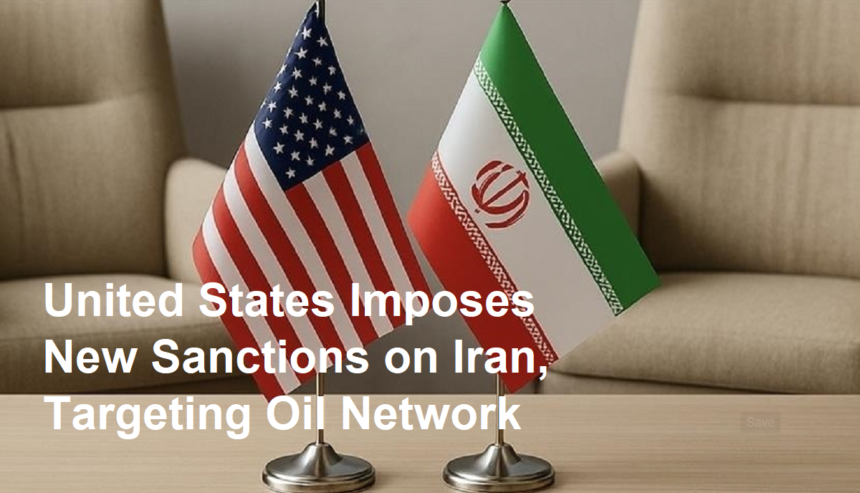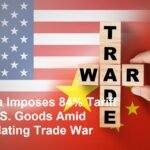Introduction
The world is no stranger to the long and complicated relationship between the United States and Iran, often defined by cycles of rivalry, negotiation, and pressure. On July 4, 2025, the U.S. administration made headlines once again by unveiling a fresh round of sanctions aimed specifically at Iran’s oil network, stepping up efforts to pressure Tehran over its nuclear activities and regional policies.
The Oil Network in Focus
Oil has always been the lifeblood of the Iranian economy—providing crucial revenue and strengthening its geopolitical clout. Current estimates suggest that a significant portion of Tehran’s foreign income comes from global oil sales, often funneled through intricate webs of middlemen, front companies, and international dealers. Recognizing this, U.S. officials meticulously investigated and mapped out these covert channels, targeting those who help Iran circumvent existing restrictions.
Why New Sanctions Now?
This latest move is no mere repetition of old policies. Tensions have increased recently, as international monitors raise alarms about Iran’s accelerating nuclear program and its growing influence in conflict-prone regions across the Middle East. The U.S. government, in coordination with several allies, decided that new, sharply targeted measures were necessary to cut off the financial arteries fueling Iran’s contentious campaigns.
According to U.S. Treasury statements, this latest package singles out dozens of shipping companies, petrochemical traders, and banking facilitators—in some cases, individuals in third-party countries accused of helping Iran mask its oil origins or reroute payments through offshore accounts.
What Do the Sanctions Mean for Iran?
When Washington targets Iran’s oil sector, the effects ripple throughout the Iranian economy. Revenue from legal oil exports drops, while costs for covert operations climb. Iranian officials, as always, denounce these sanctions as an unjust act of economic warfare. However, most observers recognize that blocking Iran’s access to hard currency and international banking networks puts significant strain on state budgets, critical imports, and even domestic job security.
History has shown that while Iran often responds by adapting—developing better smuggling tactics, looking for friendlier markets, or simply doubling down on local production—the deeper the sanctions bite, the more challenging these workarounds become. The recent measures are expected to further isolate Iran’s commercial channels and raise the risks for companies around the world that would consider doing business with its oil sector.
Impacts on Global Markets
The imposition of fresh restrictions on Iranian oil does not happen in isolation. Oil prices are notably sensitive to even minor disruptions, and traders around the world watch these developments closely. While the global oil market today is less reliant on Iranian supplies than in previous years, any new hurdle to global supply chains can increase volatility and uncertainty.
Moreover, other major oil-producing nations may see an opportunity to fill the gap, subtly shifting the global balance of power in the energy sector. Some of the United States’ closest allies may even find themselves in a bind, as they try to balance diplomatic support for sanctions with domestic needs for affordable energy.
Iran’s Potential Responses
When faced with such challenges, Iran has historically pledged resistance and resilience. Government spokespeople quickly vowed to circumvent the new restrictions, emphasizing the nation’s capacity to find alternative buyers and reengineer export strategies. However, with each additional round of sanctions, these alternative paths become steeper and more perilous, increasing the diplomatic and commercial risks for Tehran’s partners.
What Happens Next?
No sanction regime is ever absolute. The new measures leave open the possibility of further escalation or relaxation, depending on Iran’s choices and the evolving geopolitical landscape. Some experts predict intensified diplomatic activity in the months ahead, while others warn of unintended consequences—such as spiking oil prices or deeper divides among America’s international partners.
For now, the U.S. has made its position unmistakably clear: as long as Iran’s nuclear ambitions remain unchecked and destabilizing policies persist, Washington will use every tool at its disposal—with a sharp focus on the country’s oil network. The outcome will shape not just the future of U.S.-Iran relations, but global economic and security dynamics for the foreseeable future.












